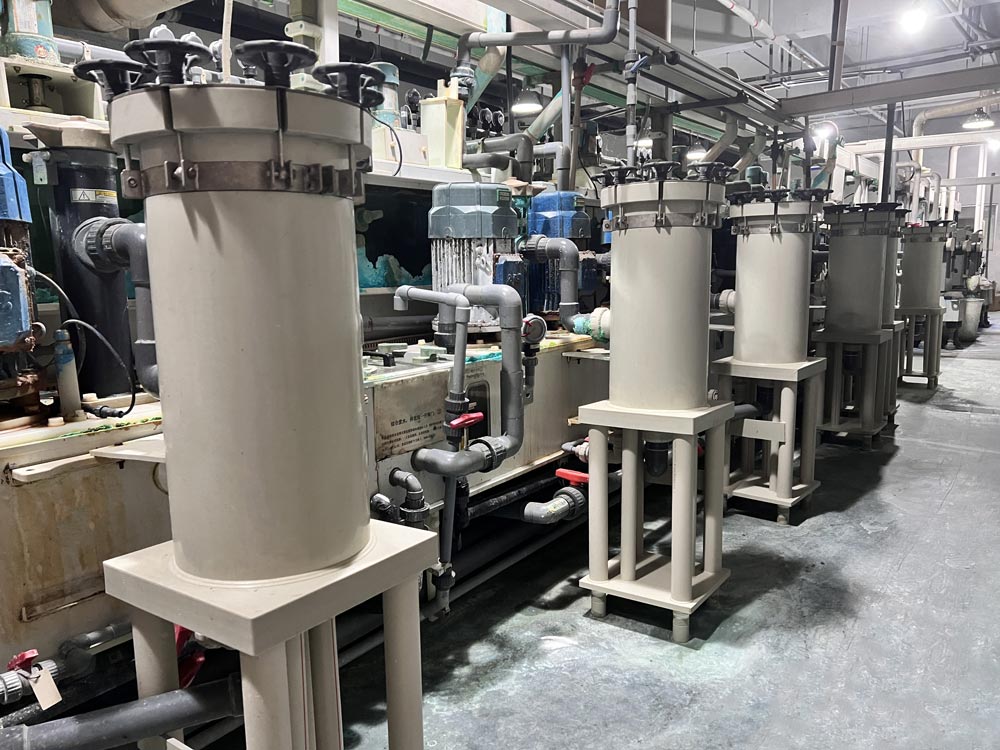# Electroplating Filter: Enhancing Efficiency and Purity in Metal Coating Processes
Electroplating is a critical process in various industries, from automotive to electronics, where metal coatings are applied to enhance durability, conductivity, and aesthetics. However, achieving high-quality electroplating results requires more than just the right chemicals and equipment. One often-overlooked yet essential component is the electroplating filter. This article explores how electroplating filters enhance efficiency and purity in metal coating processes.
## What is an Electroplating Filter?
An electroplating filter is a specialized device designed to remove impurities and contaminants from the electroplating solution. These contaminants can include particles, oils, and other debris that may compromise the quality of the metal coating. By maintaining a clean and consistent solution, electroplating filters ensure that the final product meets the desired specifications.
## The Importance of Filtration in Electroplating
Filtration plays a crucial role in the electroplating process for several reasons:
– **Improved Coating Quality**: Contaminants in the electroplating solution can lead to defects such as pitting, roughness, and uneven coating. A high-quality filter ensures a smooth and uniform metal layer.
– **Extended Bath Life**: By removing impurities, filters help prolong the life of the electroplating bath, reducing the need for frequent replacements and saving costs.
– **Enhanced Efficiency**: Clean solutions allow for faster and more efficient plating, reducing downtime and increasing productivity.
– **Environmental Benefits**: Proper filtration minimizes waste and reduces the environmental impact of the electroplating process.
## Types of Electroplating Filters
There are several types of electroplating filters available, each suited to different applications and requirements:
– **Cartridge Filters**: These are disposable filters that are easy to replace and are ideal for removing fine particles.
– **Bag Filters**: Made from durable materials, bag filters are suitable for high-flow applications and can handle larger volumes of contaminants.
– **Depth Filters**: These filters use a thick filtration medium to trap particles throughout their depth, making them effective for removing a wide range of impurities.
– **Membrane Filters**: Known for their precision, membrane filters can remove even the smallest particles, ensuring the highest level of purity.
## Choosing the Right Filter for Your Application
Selecting the appropriate electroplating filter depends on several factors, including the type of contaminants, the volume of the solution, and the specific requirements of the plating process. Here are some tips to help you make the right choice:
– **Assess Contaminant Types**: Identify the types of impurities present in your solution to choose a filter that can effectively remove them.
– **Consider Flow Rate**: Ensure the filter can handle the flow rate of your electroplating solution without causing bottlenecks.
– **Evaluate Maintenance Needs**: Some filters require more frequent maintenance than others. Choose one that aligns with your operational capabilities.
– **Check Compatibility**: Make sure the filter material is compatible with the chemicals used in your electroplating process to avoid degradation.
## Maintenance and Best Practices
To maximize the effectiveness of your electroplating filter, regular maintenance is essential. Here are some best practices to follow:
– **Regular Inspections**: Periodically check the filter for signs of wear or clogging and replace it as needed.
– **Proper Cleaning**: Follow the manufacturer’s guidelines for cleaning and maintaining the filter to ensure optimal performance.
– **Monitor Performance**: Keep an eye on the quality of the electroplating solution and the final product to detect any issues early.
– **Training**: Ensure that your staff is trained in the proper use and maintenance of the filtration system.
## Conclusion
Electroplating filters are indispensable tools in the metal coating industry, ensuring that the final product meets the highest standards of quality and durability. By understanding the different types of filters and their applications, you can make informed decisions that enhance the efficiency and purity of your electroplating processes. Regular maintenance and adherence to best practices will further ensure
Keyword: electroplating filter

Comments are closed